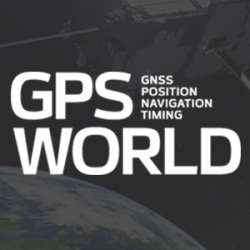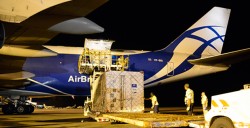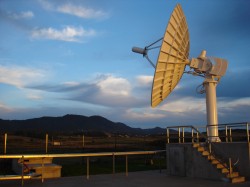
Test Shows Galileo Increases Accuracy of Location-Based Services
May 27, 2014
The European GNSS Agency (GSA) and Rx Networks Inc., a mobile location technology and services company, announced the results […]
Read More

The European GNSS Agency (GSA) and Rx Networks Inc., a mobile location technology and services company, announced the results […]

The first two Galileo Full Operational Capability (FOC) satellites arrived safely at a clean room in Kourou, French […]

The PolaRxS by Septentrio is a multi-frequency, multi-constellation receiver dedicated to ionospheric monitoring and space weather applications. It features […]

This spring, two Brussels conferences focused on new possibilities and modes of transport enabled by satellite navigation, showing the added value delivered by current and future European GNSS solutions.

In the mass market, individuals around the world are creating vast quantities of location data and GPS traces using not only GPS, but also Russia’s GLONASS, Europe’s Galileo, China’s Compass, and India’s Regional Navigational Satellite System. The value of this data and the value chains that produce it will increase significantly with an increase in interoperability of these satnav systems. Currently, non-interoperability represents a serious obstacle to the growth of the GPS market.

Galileo Countdown to 10 by Year’s End Signs Point Toward Early Services in December, If ESA Delivers A […]

The latest addition to Galileo’s worldwide ground infrastructure has been made in the mid-Atlantic, on Portugal’s Santa Maria […]

Its Algorithms and Performance The authors test three mass-market design drivers on a chip developed expressly for a new role as a combined GPS and Galileo consumer receiver: the time-to-first-fix for different C/N0, for hot, warm, and cold start, and for different constellation combinations.
Follow Us